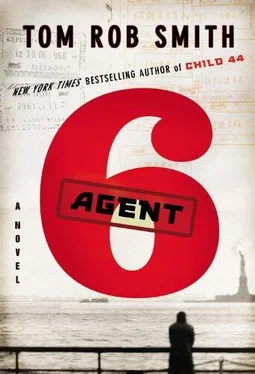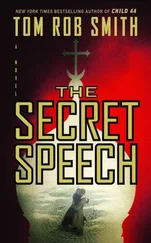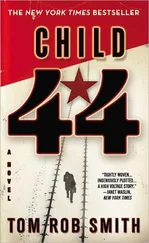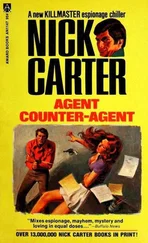Tom Smith - Agent 6
Здесь есть возможность читать онлайн «Tom Smith - Agent 6» весь текст электронной книги совершенно бесплатно (целиком полную версию без сокращений). В некоторых случаях можно слушать аудио, скачать через торрент в формате fb2 и присутствует краткое содержание. Жанр: Триллер, на английском языке. Описание произведения, (предисловие) а так же отзывы посетителей доступны на портале библиотеки ЛибКат.
- Название:Agent 6
- Автор:
- Жанр:
- Год:неизвестен
- ISBN:нет данных
- Рейтинг книги:4 / 5. Голосов: 1
-
Избранное:Добавить в избранное
- Отзывы:
-
Ваша оценка:
- 80
- 1
- 2
- 3
- 4
- 5
Agent 6: краткое содержание, описание и аннотация
Предлагаем к чтению аннотацию, описание, краткое содержание или предисловие (зависит от того, что написал сам автор книги «Agent 6»). Если вы не нашли необходимую информацию о книге — напишите в комментариях, мы постараемся отыскать её.
Agent 6 — читать онлайн бесплатно полную книгу (весь текст) целиком
Ниже представлен текст книги, разбитый по страницам. Система сохранения места последней прочитанной страницы, позволяет с удобством читать онлайн бесплатно книгу «Agent 6», без необходимости каждый раз заново искать на чём Вы остановились. Поставьте закладку, и сможете в любой момент перейти на страницу, на которой закончили чтение.
Интервал:
Закладка:
– I want to know if we’ve had any activity in Harlem recently.
A field agent approached.
– The team watching a suspected Soviet operative reported that he was in Harlem this morning. Normally he’s pretty good at giving us the slip on the subway. Not today, they followed him.
– Where did he go?
– West 145th Street.
– Who was he?
– His name is Osip Feinstein.
Manhattan Global Travel Company 926 Broadway
In the storeroom behind his office, Osip Feinstein developed the photographs he’d taken of Jesse Austin towering over the Russian girl, the rumpled bed sheets in the background appearing to carry the fossilized impression of their sexual encounter. It would’ve been preferable for Jesse’s hand to be clasping her arm rather than the other way round. No matter, the sordid implications were striking. What couldn’t be seen in the photograph was Austin’s wife. She was out of shot. Nor would anyone know that the bed had been unmade before the girl had arrived. Those passing judgement were unlikely to spend time analysing it: the snap response would be outrage. The roles of the villain and victim were clear. Though the meeting had been entirely innocent, the photograph produced showed striking guilt and moral compromise – an exploited, fragile white girl pathetically bidding farewell after a squalid escapade with a lecherous old Negro.
Osip dropped his head in shame, staring at his wrinkled hands clasped around the photographs. He noted with interest that he still had the capacity to feel shame. He wasn’t entirely dead inside, numbed with opium but not yet oblivious to his failings. This was not the life he’d sought when he’d come to America, to frame a man he admired, a man of great integrity.
A long time ago Osip had been a man of integrity too. Though he was now a spy, the truth was that he had no love for the Soviet Union and plenty of affection for the country he was betraying. He reconciled the contradiction, to some degree, by smoking opium – which helped a lot – and rationalizing – which helped a little. When he’d arrived in New York as a young man, he’d felt certain that success of some kind was inside him. He’d achieved success but not the kind he’d expected. At the age of fifty-nine, Osip had become one of the longest-serving Soviet spies to work in ‘the main adversary’, spy slang for the United States of America.
As a young man, forty years ago, Osip had been an ambitious nineteen-year-old living in the Ukraine, attending Kyiv University, with aspirations to spend his life in academia. Feeling the grip of prejudice around the neck of his fledgling career – the door to his room defaced, the Star of David scratched into it, the contempt of his tutors – it was evident that he would never achieve a professorship. Sitting in his cold room, looking over a snow-covered street, he could no longer imagine a future in Kyiv. Without close family to root him in the city, he made the decision to leave, motivated less by a sense of fear than a determination to fulfil his potential. He’d originally intended to travel to France. However, leaving Kyiv was akin to stepping off a cliff and falling into the ocean, buffeted by the waves, with no control over his direction. He eventually washed up on the shores of the American consulate at Riga, Latvia, where he’d remained in the State Emigrant House for two days, suffering the indignity of being examined and disinfected. He’d paid his entire worldly fortune to the Sovtorgflor Company, which specialized in arranging travel for emigrants. Clutching his transit papers and doctor’s certificate, six months after he’d made the decision to leave, he’d boarded a boat. For the first time he could imagine a future again: his future was New York.
He arrived in 1934 – the worst period in living memory to look for work. To make matters worse, his gifts were intellectual. Even so, he’d failed to complete his degree, meaning that the only work open to him was as an unskilled labourer, yet he lacked the physical strength to compete within the vast and desperate labour pool. Frm the window of his run-down room, shared with five other men, he’d watch the Unemployed Union marching through the streets, slow-moving lines of jobless workers that filed south on Broadway. He’d scratched together a meagre, desperate existence for a couple of years, living hand to mouth, before chancing across Communist activists trying to tap into the disenchantment of the unemployed. His survival instincts had taken over and sensing an opportunity he approached them, explaining his history. Since he was Jewish and fluent in Russian, they presumed he had an predisposition to Communism. He’d lied about the reasons he’d left the Soviet Union, explaining that he’d come to the USA in the depths of the Great Depression certain that the capitalist society was in crisis and wishing to ferment a revolution. Familiar with the jargon, the slogans, aphorisms and theory, he’d dazzled his audience. Though the Communist Party of the USA didn’t know it, they were at the apogee of their success. The Communist presidential candidate William Foster and his Negro running mate James Ford had received over a hundred thousand votes in the 1932 election – claiming to be at the forefront of change: progressive socially and offering a radical alternative to the broken capitalist system that had driven workers to jump from office windows and families to live in shanty towns in Central Park. Almost everyone involved with the CPUSA hoped the Depression was the beginning of the end for capitalism, everyone, that is, except for their newest recruit, Osip.
Osip was starving, sick and unemployed. He didn’t care about the party. He cared that they had money. They could pay him – the CPUSA received substantial illegal subsidies from the Soviet Union, transferred via a system of mail drops. They could feed and clothe him. For the first time since arriving in New York he ate well, without counting the cost of each mouthful. His strength returned. After several months of leafleting and performing rudimentary services for the party, it was decided he would set up a legitimate business called the Global Travel Company, selling tourist packages for Eastern Europe and the Soviet Union. Under this cover, Osip was tasked with importing potential spies from the Soviet Union, academics and scientists who could infiltrate key military and scientific operations in the United States. The American authorities would accept the applicants because they would be too brilliant to pass over. He’d run this tourist agency, which lost thousands of dollars, ever since.
The store bell was ringing. He had a customer. There were very few legitimate customers: rarely more than four or five a week. Osip wiped his hands and stepped into the store regarding the customer, a man in his forties. He was wearing a crumpled suit. The cut was poor and his shoes were cheap and scuffed but he wore his clothes with a swagger and bravado that concealed many of their faults. He was an FBI agent and Osip was sure it was the man he’d seen outside Jesse Austin’s apartment. The agent had yet to look at him, flicking through one of the brochures. Osip said:
– Can I help you?
The agent turned, answering with mock formality:
– I was wondering how much it would cost for a one-way ticket to the Soviet Union? First class, of course, I only want to see Communism if I can travel in luxury.
He switched into his regular way of speaking.
– Isn’t that how it works in rackets like this, people with lots of money paying to see how people live with none?
– The point is for the traveller to experience a different way of life. What they make of that society is entirely up to them. We merely make the arrangements.
Читать дальшеИнтервал:
Закладка:
Похожие книги на «Agent 6»
Представляем Вашему вниманию похожие книги на «Agent 6» списком для выбора. Мы отобрали схожую по названию и смыслу литературу в надежде предоставить читателям больше вариантов отыскать новые, интересные, ещё непрочитанные произведения.
Обсуждение, отзывы о книге «Agent 6» и просто собственные мнения читателей. Оставьте ваши комментарии, напишите, что Вы думаете о произведении, его смысле или главных героях. Укажите что конкретно понравилось, а что нет, и почему Вы так считаете.












